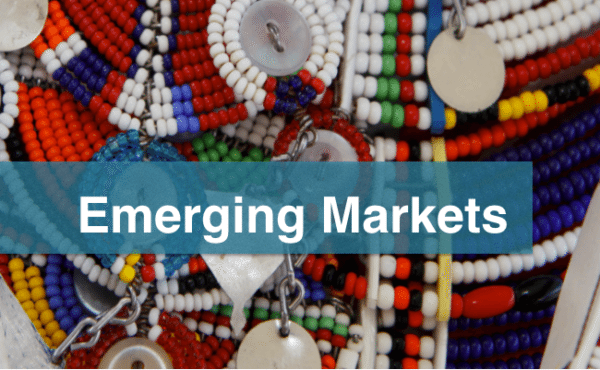If you are an entrepreneur in emerging markets, you have probably heard a lot about crowdfunding, but wondered how it could be useful for your early-stage business.
In developed markets, crowdfunding is swelling the ranks of early-stage entrepreneurs and bolstering the pipeline of enterprises that diversify economies and create the majority of jobs. However, for early-stage entrepreneurs in emerging markets, the path toward crowdfunding remains untrod.
 Microlending platforms like Kiva are issuing consumer lending finance but cannot provide enough capital to fund the core business operations of a startup – the average loan on Kiva, for example, is $454. Larger amounts of debt or equity are available via online platforms, but these are best suited for more mature companies or projects with an established track record.
Microlending platforms like Kiva are issuing consumer lending finance but cannot provide enough capital to fund the core business operations of a startup – the average loan on Kiva, for example, is $454. Larger amounts of debt or equity are available via online platforms, but these are best suited for more mature companies or projects with an established track record.
What is missing is a normative usage of presale, rewards, or contributions crowdfunding for early-stage companies, as they attempt to move their idea to prototype and on to customer engagement. In societies where e-commerce is underutilized, payment systems are frail, and even the term “crowdfunding” is widely unknown, the lack of established models and best practices is understandable.
Despite these challenges, many African entrepreneurs are paving the way for crowdfunding by experimenting with different online platforms, testing new techniques, and adapting models to developing markets. The new World Bank Group’s study “Crowdfunding in Emerging Markets: Lessons from East African Startups” captured and analyzed what these first crowdfunding adopters have learned through their innovative campaigns in East Africa.
From their successes and failures, the study discusses six key lessons:
 1) Crowdfunding is much more difficult than most entrepreneurs anticipate and is not for everyone. Opportunity costs abound.
1) Crowdfunding is much more difficult than most entrepreneurs anticipate and is not for everyone. Opportunity costs abound.
Running a successful campaign requires time and significant human and financial resources. Entrepreneurs should research other crowdfunding campaigns in similar sectors or geographic areas to understand what to expect and carefully consider how the opportunity costs of crowdfunding compare with other available sources of capital.
One entrepreneur said: “You eventually feel like you lose out on normal business operations, management, and engagement with the company. Sales go down and you generally lose income as you put more time into the crowdfunding process.”
2) Business needs should dictate platform choice.
Entrepreneurs should realistically assess how much capital can be raised from crowdfunding platforms that serve their geographic areas. Debt and equity platforms that tend to enable larger amounts of funding are often not available in many emerging markets. If an entrepreneur is best serviced by a particular instrument (e.g. debt or equity), and that instrument is not available in his/her country or region, then she/he should consider alternative sources of financing.
3) Payment systems impact platform choice.
Leading international crowdfunding platforms often set restrictions on who can launch campaigns and use payment systems that bar contributions from the developing world. Locally based platforms are better suited to engage the developing world, but have a much smaller pool of potential contributors.
Tiffany Tong and her campaign offer a good example. Tiffany is CEO of the online staffing application Nikweli.com based in Tanzania. She is a dual Canadian citizen with significant networks in North America, so she decided to use Kickstarter. As she publicized her campaign via social media, she learned of local Tanzanians who wanted to support the campaign but did not meet Kickstarter’s credit card requirements. Ultimately, she missed out on significant contributions from local Tanzanians.
4) Quality and quantity of contributor networks are key.
Entrepreneurs should spend a significant amount of time building a contact base that will bring capital and support the campaign promotion. In addition, entrepreneurs who can “pre-raise” funds from their existing networks before a campaign goes live stand a better chance of meeting their fundraising goals.
A good example of base building is the ‘Shake Your Power’ campaign. Sudha Kheterpal launched this Kickstarter project to build and distribute kinetic energy generating musical shakers that could be used for off-grid personal energy needs in Kenya. Kheterpal successfully raised £53,001 (about $81,000), just surpassing the £50,000 goal, from 943 backers, 160 of whom Kheterpal knew personally. Even with marketing outreach from third party media outlets, almost 60 percent of the funds came directly from people within Kheterpal’s social media networks (Facebook, Twitter, and Google).
5) Entrepreneurs should tap into complementary resources and organizations to increase their likelihood of success.
Business incubators and mentors can be essential sources of information and support for first-time crowdfunders. Matching funds have proven to be an effective tool that encourages local contributors to channel their funds through online platforms.
Matching funds were successfully utilized by 24-year-old Mukeli Matai of Kenya for her aquaculture startup Fishmate. Matai raised €2,678 from about 20 members of her family, triggering €6,000 from the Cheetah Fund matching program. In this case, the matching funds created a clear incentive for the Matai’s family to channel their money into an online platform. This offline-online effect helps generate success stories that, eventually, will promote a wider understanding and acceptance of crowdfunding.
6) Crowdfunding can have non-monetary benefits.
 In addition to capital, crowdfunding helped African businesses increase credibility and market awareness. This often resulted in new partnerships, sales, or investment. In some cases, local entrepreneurs even used feedback from contributors to refine their products or business models.
In addition to capital, crowdfunding helped African businesses increase credibility and market awareness. This often resulted in new partnerships, sales, or investment. In some cases, local entrepreneurs even used feedback from contributors to refine their products or business models.
One anonymous entrepreneur who did not reach a set fundraising goal stated: “I’ve received calls from everyone, from recruitment agencies to equity partners.” As a direct result of the campaign, the company signed a contract worth $120,000 with one of its partners.
The lessons above are intended as an initial touch point for early adopters in the nascent African crowdfunding market. It should also serve as a call to action for African crowdfunding platforms, business incubators, and regional stakeholders to preserve and share as much data as possible. Capturing and sharing this data will help create systems, models, and norms that can mitigate risks and promote the effective use of crowdfunding by local entrepreneurs.
You may read and download the report here.
 Sam Raymond is a Consultant with the Innovation and Entrepreneurship Unit at the World Bank. His work centers on designing and managing pilot programs to test financial innovations such as crowdfunding, technology-enabled banking and Bitcoin. He has worked extensively in the Caribbean to map the environment for crowdfunding as well as to provide strategic advisory for the World Bank’s program to assist the formation of angel investor networks in Jamaica and Barbados. Both crowdfunding and angel investing exhibit potential for linking to diaspora to facilitate investment in startups and other assets. Prior to joining the World Bank Group, Sam worked as Research and Staff Assistant to Speaker of the United States House of Representatives Nancy Pelosi. Sam is an avid cyclist, percussionist and tennis player.
Sam Raymond is a Consultant with the Innovation and Entrepreneurship Unit at the World Bank. His work centers on designing and managing pilot programs to test financial innovations such as crowdfunding, technology-enabled banking and Bitcoin. He has worked extensively in the Caribbean to map the environment for crowdfunding as well as to provide strategic advisory for the World Bank’s program to assist the formation of angel investor networks in Jamaica and Barbados. Both crowdfunding and angel investing exhibit potential for linking to diaspora to facilitate investment in startups and other assets. Prior to joining the World Bank Group, Sam worked as Research and Staff Assistant to Speaker of the United States House of Representatives Nancy Pelosi. Sam is an avid cyclist, percussionist and tennis player.





